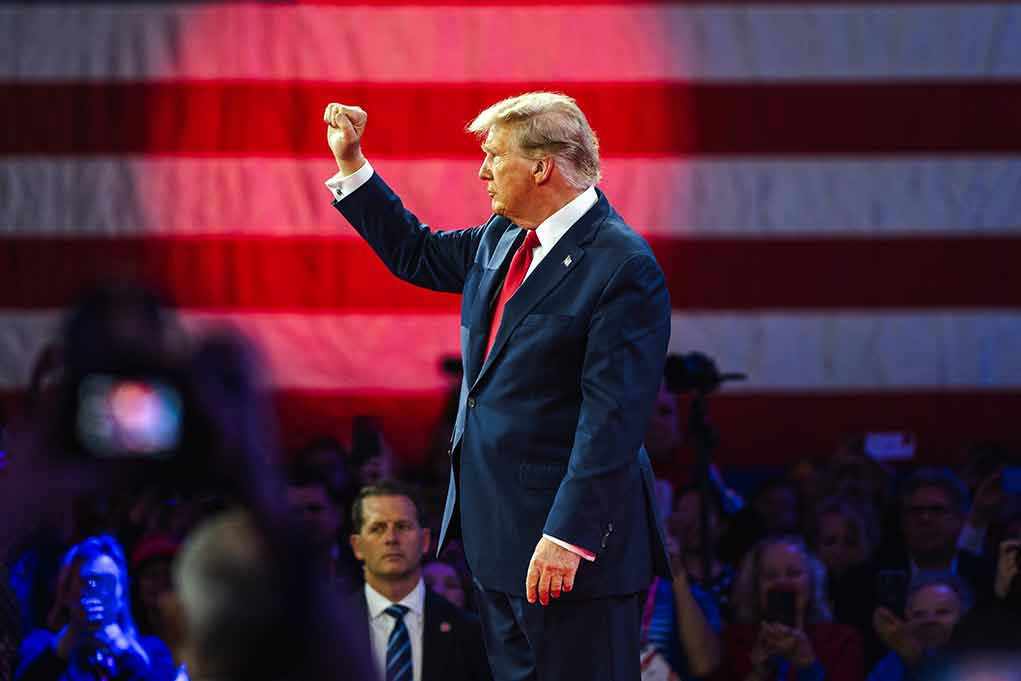
The Supreme Court’s expedited review of President Trump’s sweeping tariffs represents a critical battle to preserve presidential emergency powers against judicial overreach that threatens America’s ability to protect its economic sovereignty.
Story Highlights
- Supreme Court fast-tracks Trump tariff case with November 2025 oral arguments scheduled
- Federal courts have repeatedly struck down tariffs covering nearly all imports, undermining executive authority
- Trump’s “fentanyl” and “reciprocal” tariffs target unfair trade practices and drug trafficking crisis
- Business plaintiffs claim $100 million burden while ignoring national security benefits
- Case will define limits of presidential emergency powers under International Emergency Economic Powers Act
Presidential Authority Under Attack by Lower Courts
The Supreme Court agreed to hear President Trump’s appeal of lower court decisions that struck down his comprehensive tariff program. The Federal Circuit Court ruled August 29 that the International Emergency Economic Powers Act does not authorize Trump’s tariffs on nearly all imports, creating dangerous precedent that handcuffs future presidents. This judicial intervention undermines the executive branch’s constitutional authority to respond swiftly to national emergencies and unfair foreign trade practices.
Trump implemented the tariffs through Executive Order 14289 on March 4, 2025, targeting two critical threats to American prosperity. The “fentanyl” tariffs address the deadly drug crisis by imposing penalties on Canada, China, and Mexico for failing to stop the flow of lethal substances. The “reciprocal” tariffs, ranging from 10% to 50%, combat decades of unfair trade practices that have devastated American manufacturing and enriched foreign competitors at taxpayers’ expense.
Judicial Overreach Threatens Economic Security
Lower courts have systematically undermined Trump’s tariffs despite their clear legal foundation and national security justification. The Court of International Trade issued a permanent injunction May 28, 2025, blocking the tariffs before they could address the crisis. While the Federal Circuit temporarily stayed this decision, allowing tariffs to continue, their August ruling declared the measures unlawful and threatens to eliminate them entirely by October 14, 2025.
This pattern reveals activist judges prioritizing foreign interests over American workers and national security. The IEEPA, enacted in 1977, specifically grants presidents broad authority to regulate commerce during declared national emergencies. Trump’s invocation of this law responds to genuine threats: fentanyl killing Americans and predatory trade practices destroying domestic industries. Courts substituting their judgment for presidential expertise on national security matters represents dangerous judicial overreach.
Economic Stakes and Constitutional Principles
The tariffs have generated $185 billion for the American government in 2025, demonstrating their effectiveness in rebalancing unfair trade relationships. Yet importers like Learning Resources and V.O.S. Selections claim the measures impose excessive costs, prioritizing their profit margins over national interests. These companies’ $100 million burden pales compared to the trillions lost through decades of trade deficits and the immeasurable cost of American lives destroyed by fentanyl.
So far, in 2025, tariffs have brought in 185 billion dollars to the American government. Why wouldn't one want that for their country?
"Supreme Court says it will hear Trump appeal on tariffs in key economic case." Full story on FND.— Robert Frano (@RobPFra) September 9, 2025
The Supreme Court’s decision will determine whether presidents retain meaningful emergency powers or face judicial micromanagement of national security decisions. Striking down these tariffs would establish precedent allowing courts to second-guess presidential responses to foreign threats, weakening America’s ability to protect its economic interests. Constitutional separation of powers demands judicial deference to executive authority in matters of national security and foreign commerce, principles essential to effective governance and American sovereignty.
Sources:
Supreme Court agrees to decide the fate of Trump’s tariffs
Court of Appeals strikes down IEEPA tariffs, setting stage




